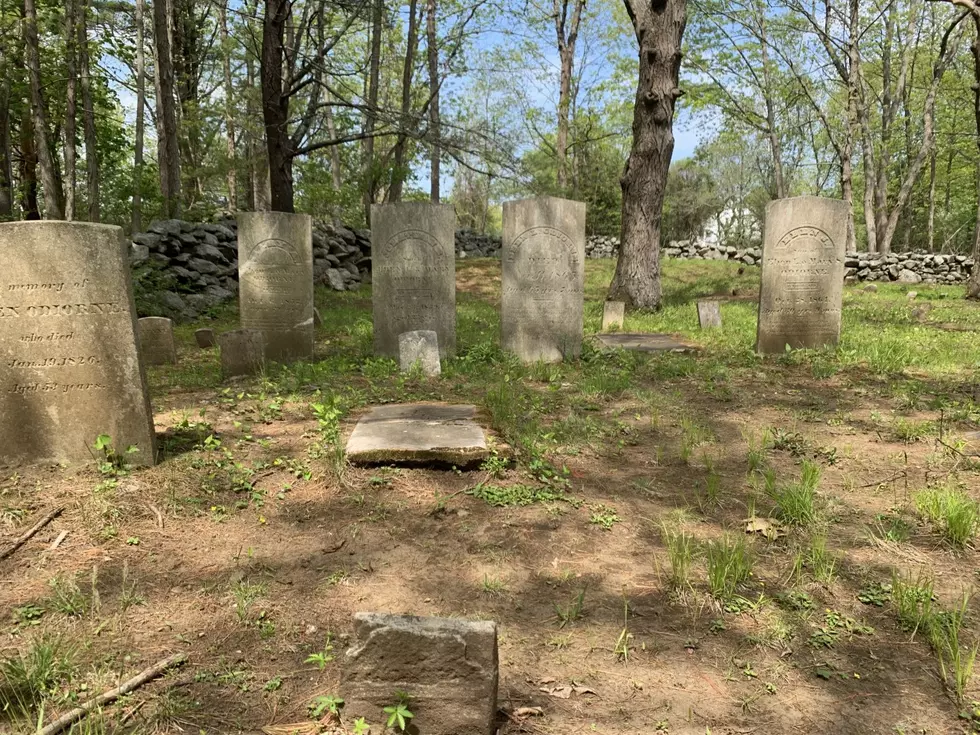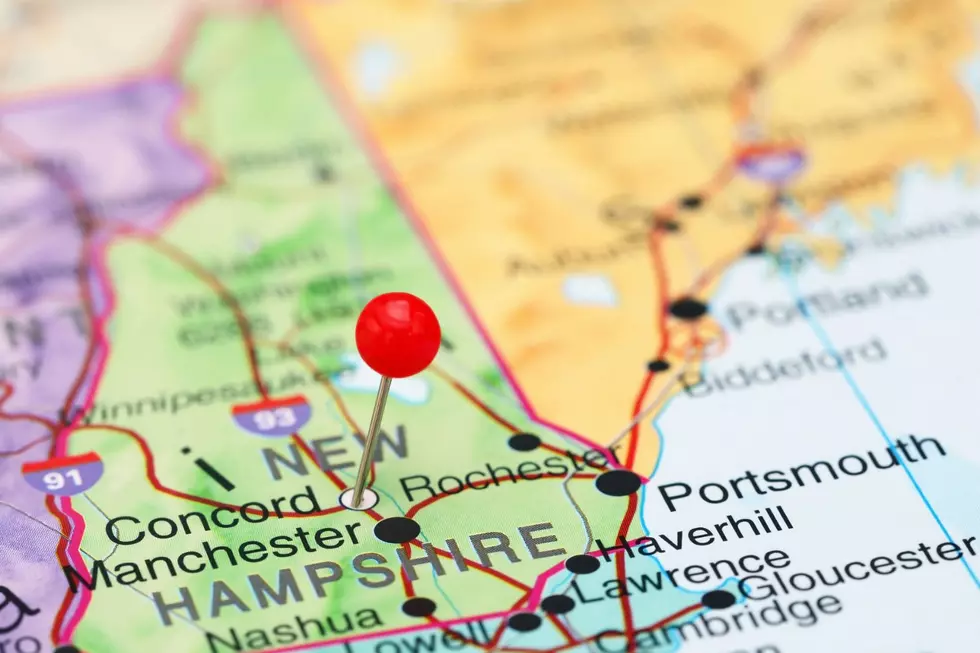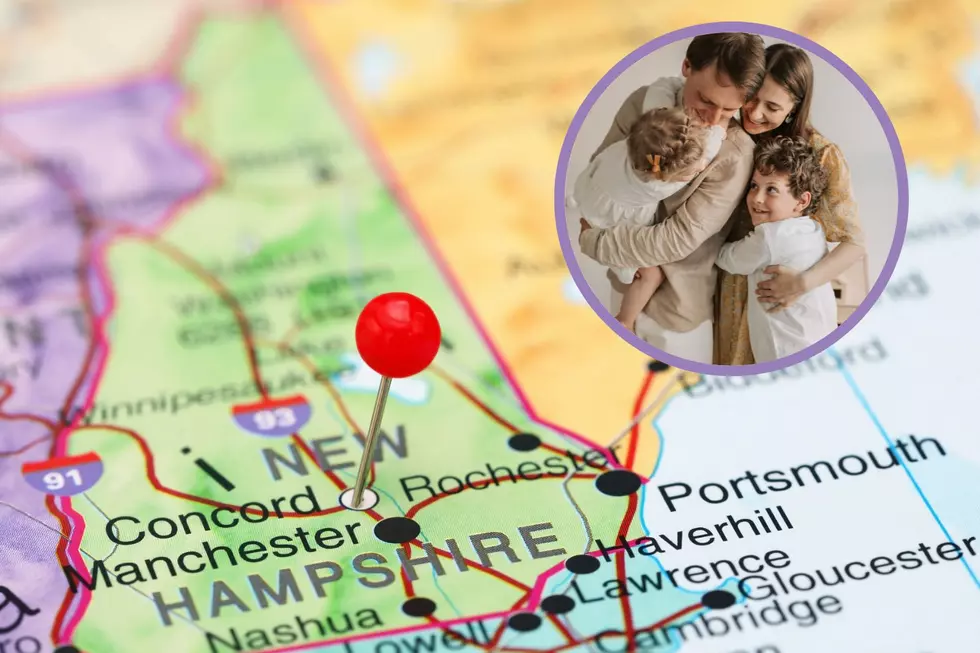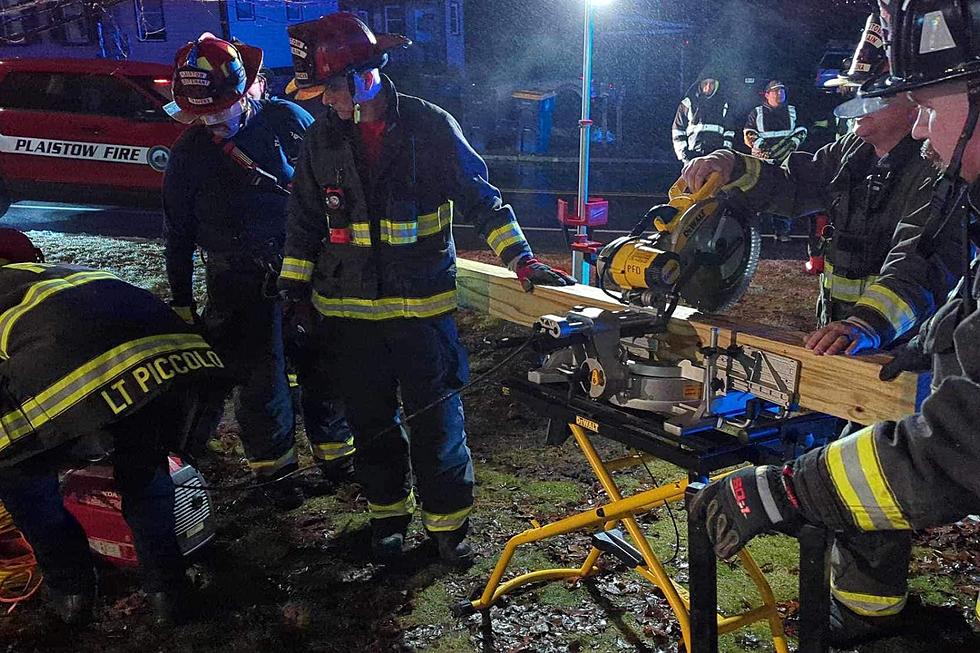
Hampton Sand Sculpture Fireworks Canceled Because of Plovers
🔴 Piping plovers are nesting near crowded areas of Hampton Beach
🔴 A record number of nesting piping plovers are in Hampton and Seabrook
🔴 The Hampton Beach Sand Sculpting Classic continues rain or shine
The fireworks for the Hampton Beach Sand Sculpting Classic are canceled Saturday night for the second year because of nesting piping plovers.
The classic was planning to celebrate its 23rd year with a display at 9:30 p.m. but rain and a chance of showers and thunderstorms have led to the display's cancellation. It's also to protect the nesting piping plovers because of the way they react to rain.
NH Fish and Game biologist Brendan Clifford told Seacoast Current the town was given several recommendations about their fireworks displays and piping plovers. One of them was no fireworks if there was going to be rain or under 55 degrees.
"The birds might be jumping up off the nest and precipitation on the eggs might kill the eggs which are still incubating," Clifford said. "It would also be kind of prudent for them to do that for the birds based on our recommendation.
The National Weather Service in Gray, Maine is forecasting a low around 55 on Saturday night.
Rain is good for sand sculpting
Clifford said Fish & Game also recommended keeping the fireworks crowd away from the nests and to continue using the lower sound fireworks
"They nesting just on the edge of where they may be okay or may not be. They're not nesting as close as they've been in previous years where we've had to recommend don't have them all because you'd be shooting them off right over them. They've nested kind of further north and further south this year."
The sand sculpting artists will continue their work in the rain which actually benefits their creations.
"The rain is actually good for us. Rain helps wet sand down and keep it in place. The sun and the wind are major enemies. To keep the sun from drying it up and the wind from blowing it away, we put a solution of 10% Elmer's glue 90% water after it's been completed," organizer and founder Greg Grandy told Seacoast Current in 2022.
Piping plovers nesting too close to the beach and didn't hatch before the display forced its cancellation in 2022.
A record number of nesting piping plovers are in Hampton and Seabrook
The tiny endangered birds have again taken up nesting on the beach in Hampton and Searbrook. They picks a spot near normally crowded area of Hampton Beach in 2020 during the pandemic when restrictions kept beachgoers away.
This year there are at least 15 nesting pairs located on Hampton and Seabrook beaches, according to NH Fish and Game biologist Brendan Clifford, a New Hampshire record. A 16th pair is present but has not established a nest.
Just over 2,000 pairs of piping plovers make up the entire Atlantic population.
Clifford says last year 28 chicks made it to flight and they may return to their beach of birth if they survive their first fall migration to Florida and the Gulf Coast.
The areas where they are nesting is fenced off with yellow rope. So far the chicks have thrived this year with five nests hatched producing a total of 21 chicks ranging in age from 5-15 days. Cool and wet weather this spring has again kept people off the beach.
"The more uninhibited access they have to feed along the water’s edge the quicker they grow, which greatly increases their chances of survival," Clifford said.
Helping the chicks survive
It takes about 30 days for the chicks to be considered "fledged" and ready to fly away. Biologists from the Nongame Program and trained volunteers are monitoring the chicks and the beach to keep people away from the nests.
Some things to keep in mind while at Hampton and Seabrook beaches:
- Watch where you step – A plover chick’s defense mechanism is to freeze when people get close, which makes it difficult to see. The newly hatched chicks are about the size of a cotton ball and sand-colored, so they can be difficult to see with an untrained eye.
- Leash your dog – Free-running dogs can accidentally step on and crush eggs and chase after the chicks and adult plovers. Hampton Beach State Park and the Town of Seabrook both have restrictions regarding dogs on beaches during the summer. People should check the rules before bringing their dog on any public beach.
- Fill in holes – Holes in the sand are traps for the tiny chicks which can’t fly. Filling in any holes on the beach makes it a safer place for the chicks (and reduces the number of twisted ankles for unsuspecting beach-walkers!)
- Volunteer – Trained volunteers will be needed to help with monitoring the plover chicks, particularly as the beaches fill up toward the end of June. Anyone interested in volunteering can contact Brendan Clifford of the NH Fish and Game Department at 603-271-0463
Contact reporter Dan Alexander at Dan.Alexander@townsquaremedia.com or via Twitter @DanAlexanderNH
12 Places to See Live Summer Theater in New Hampshire
More From Seacoast Current








